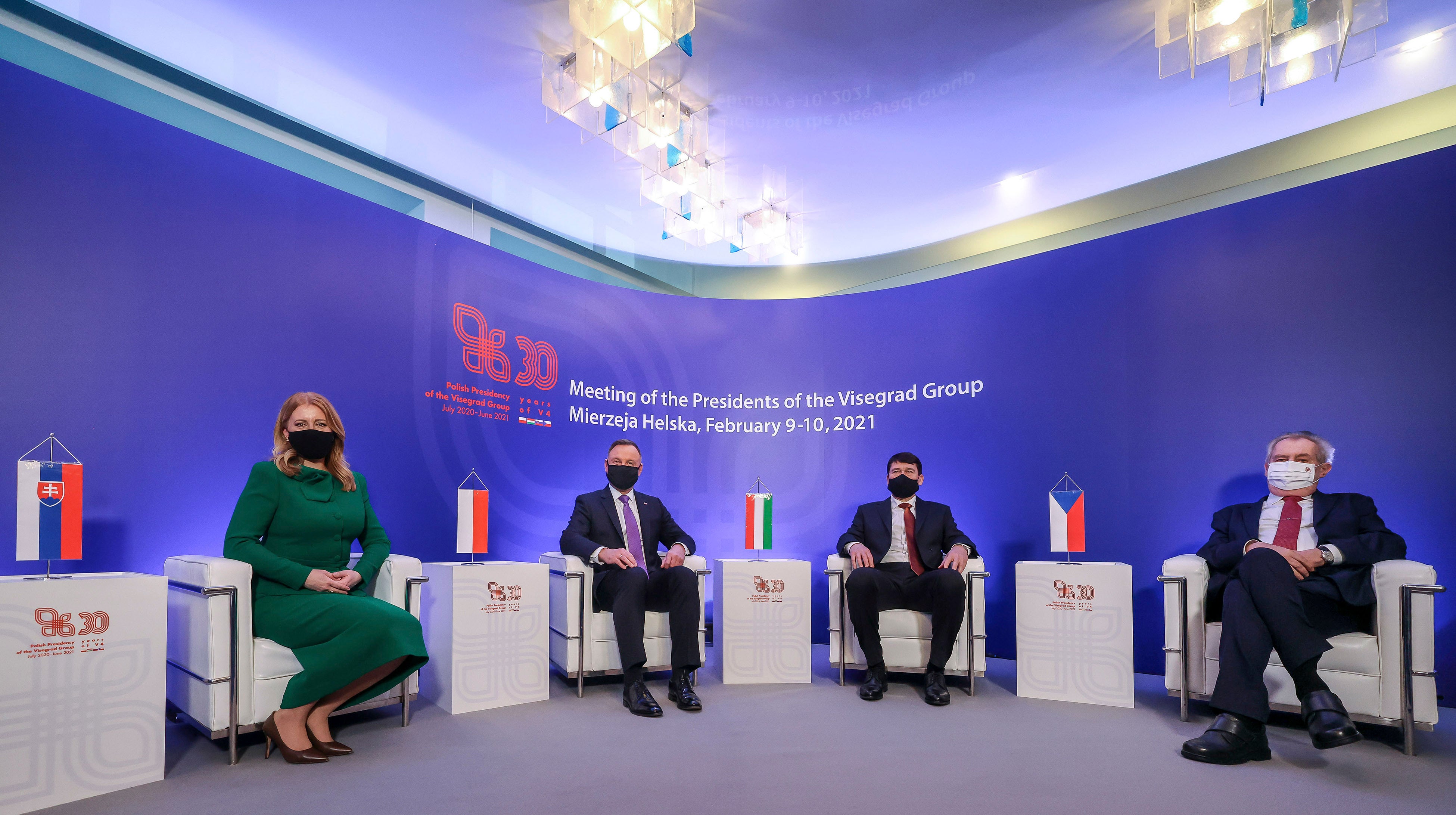Central Europe leaders focus on vaccination, nuclear energy
The presidents of Poland, Hungary, the Czech Republic and Slovakia have discussed mass vaccination as a means to bring their economies out of the coronavirus pandemic and backed nuclear energy as a way to curb climate change

Your support helps us to tell the story
From reproductive rights to climate change to Big Tech, The Independent is on the ground when the story is developing. Whether it's investigating the financials of Elon Musk's pro-Trump PAC or producing our latest documentary, 'The A Word', which shines a light on the American women fighting for reproductive rights, we know how important it is to parse out the facts from the messaging.
At such a critical moment in US history, we need reporters on the ground. Your donation allows us to keep sending journalists to speak to both sides of the story.
The Independent is trusted by Americans across the entire political spectrum. And unlike many other quality news outlets, we choose not to lock Americans out of our reporting and analysis with paywalls. We believe quality journalism should be available to everyone, paid for by those who can afford it.
Your support makes all the difference.The presidents of Poland, Hungary the Czech Republic and Slovakia on Wednesday discussed mass vaccination as a means to bring their economies out of the coronavirus pandemic and backed nuclear energy as a way to curb climate change amid rising demand for energy.
The four presidents said during a news conference that the Central European nations that make up the Visegrad Group are bringing needed diversity to the views of the European Union, which they joined in 2004. The group, also known as V4, is an informal body that promotes political and economic cooperation in the region.
The leaders were in northern Poland's Hel Peninsula for a two-day summit marking the Visegrad Group’s 30th anniversary.
In response to a reporter's question, Polish President Andrzej Duda criticized last week's visit to Moscow by the EU’s foreign policy chief, which came shortly after Russian opposition leader Alexei Navalny was sent to prison for more than 2 1/2 years. Duda asked what the goal of Borrell's visit was if a top EU official could not obtain Navalny’s release.
The four leaders said the primary focus of their summit was fighting the pandemic and preventing global warming.
Slovakian President Zuzana Caputova said they debated “various strategies and approaches to the crisis” caused by the coronavirus, including the role vaccines will play in ending the pandemic but also the “weaknesses in the health and education system in our countries, which are also slowing down our economies.”
“We discussed which areas and reforms will be the priority in applying the EU Recovery fund,” Caputova said.
She said Slovakia had the potential and the know-how to be producing licensed vaccines.
The leaders urged faster deliveries from vaccine makers.
Hungarian President Janos Ader said a relaxing of restrictions, especially in the hard-hit tourism industry, could be possible in May, if shot supplies allow for the acceleration of national vaccination programs.
“We are encouraging all to get vaccinated," Ader said.
On the issue of climate change, Ader said all four nations want to develop nuclear energy.
The “use of coal should be reduced or fully given up” to reduce greenhouse gas emissions, but reliable sources are needed to “meet the needs of the economy and the energy sector, and for that purpose we need nuclear energy,” he said.
The group will make efforts to obtain EU funding for the purpose, he said.
Czech President Milos Zeman rejected some views that the V4 was a mechanism to protect its members from certain EU decisions and actions, saying they were “silly views of a minority.”
“We definitely should not go back to a Bolshevik-kind of unanimity because a unity of opinion can be very harmful,” Zeman said.
He said the group’s proposals on the current EU budget were an example of the V4 proposing solutions that “benefit all of the EU."
Next week, Polish Prime Minister Mateusz Morawiecki is scheduled to host an anniversary meeting of the V4 heads of government with European Council President Charles Michel. The meeting will be held at Wawel Castle in Krakow.
The V4 was founded in February 1991 from a declaration of cooperation that then-Presidents Lech Walesa of Poland, Vaclav Havel of then-Czechoslovakia and Jozsef Antall of Hungary signed in Visegrad, Hungary. Poland currently holds the group’s 12-month rotating presidency, which it will hand over to Hungary on July 1.